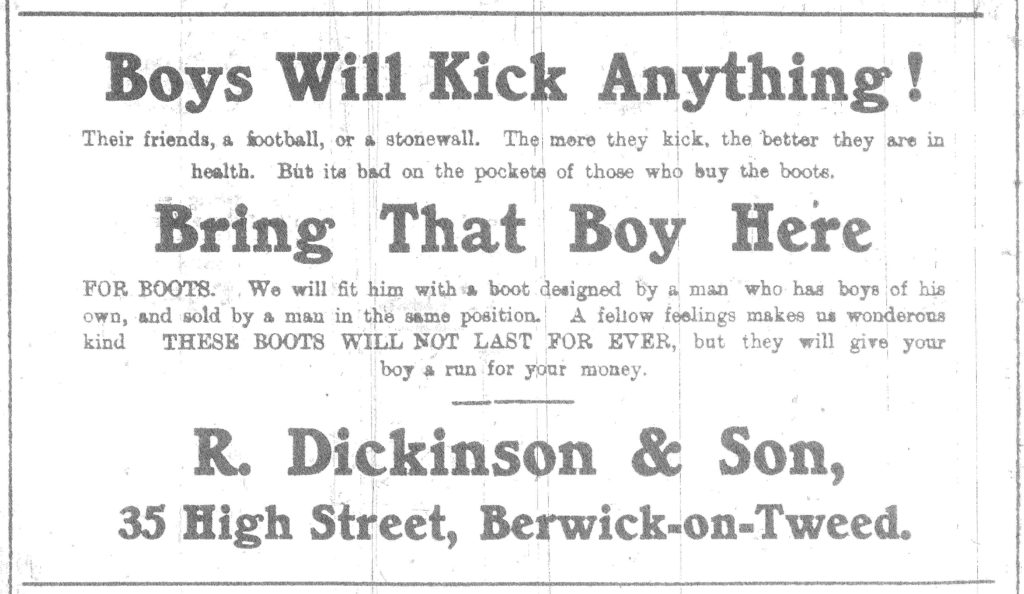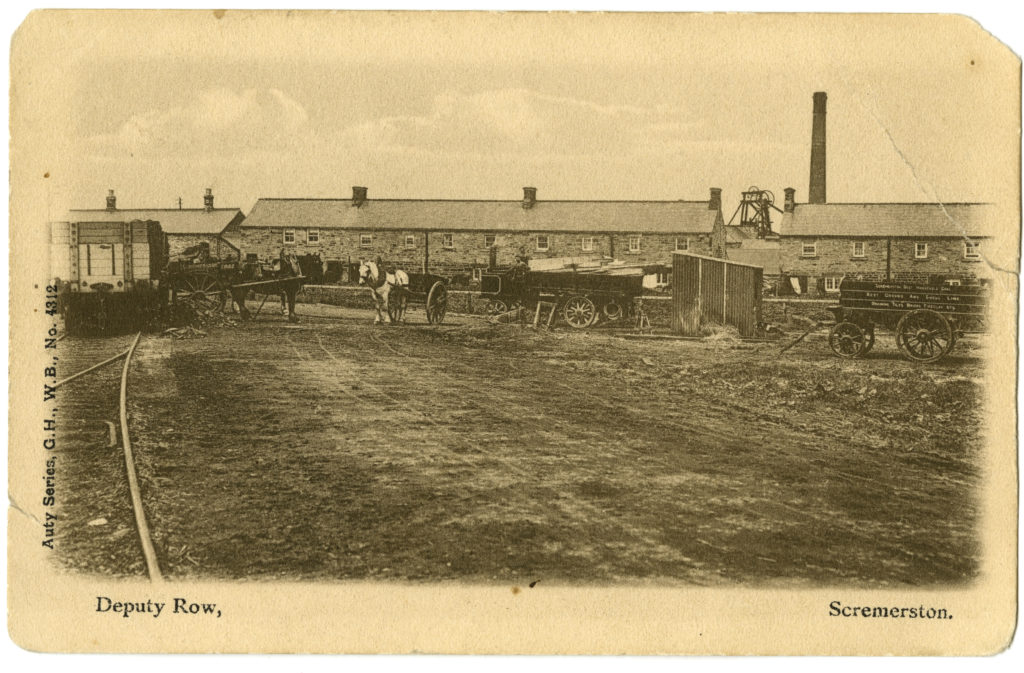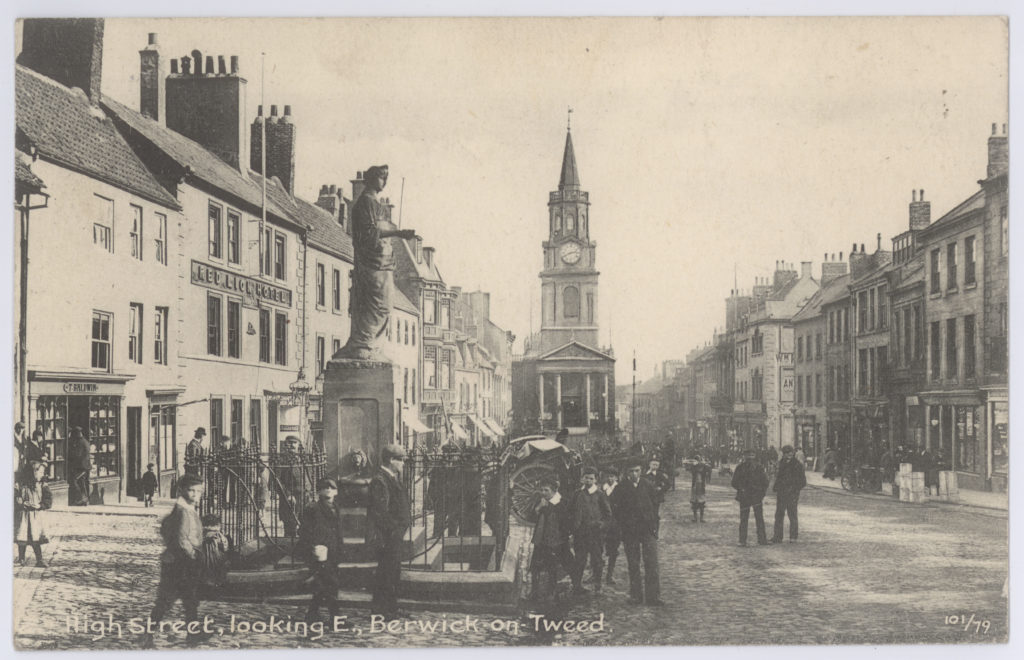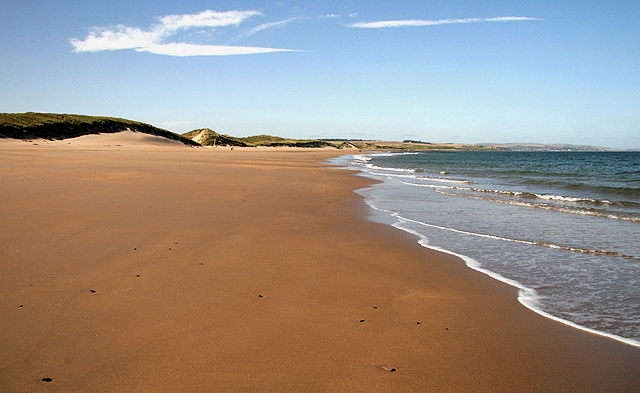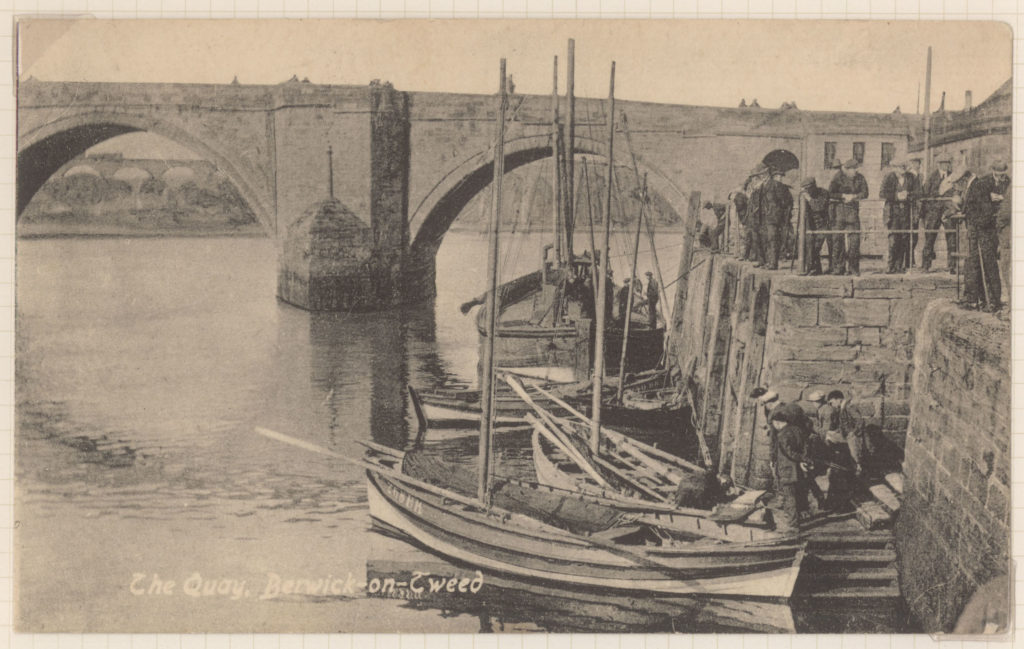BERWICK ADVERTISER, 21 SEPTEMBER 1917
WAR NEWS
FROM TRENCHES TO HOMELAND
Two brothers in the Northern Cyclist Batt., John and James Scott, residing at Richardson Stead, Scremerston, are spending a few days well-earned leave far from the noise of battle. Both lads joined up shortly after war began, and after training went to France in July, 1916. In civil life they were employed as ploughmen at New Heaton, Cornhill. We trust good luck will attend them.
Private Andrew Scobie, R.G.A., is here on hospital leave. He is the son of Rev. R. Scobie, The Manse, Tweedmouth, and previous to enlistment was employed as a clerk by the Scremerston Coal Company.
We are pleased to see this week on our midst, Private Robert Hendry, N.F., home on hospital leave, and he is looking fit and well and in the best of spirits. He is the husband of Mrs Hendry, Murton Farm, Berwick.
Lieut. Bart. Turnbull, M.C., Castlegate, Berwick, has been home in the town enjoying a well-earned leave. He returns with our best wishes.
Pleased to see Private Henry Richardson, London Regiment, son of Councillor Peter Richardson, home on a few days leave.
Private George Rutherford, N.F., son of Mr Rutherford, Spittal, and a former employee at the “Advertiser” Office, is spending an all too brief ten days’ leave from France, renewing old acquaintanceship. He returns with our best wishes.
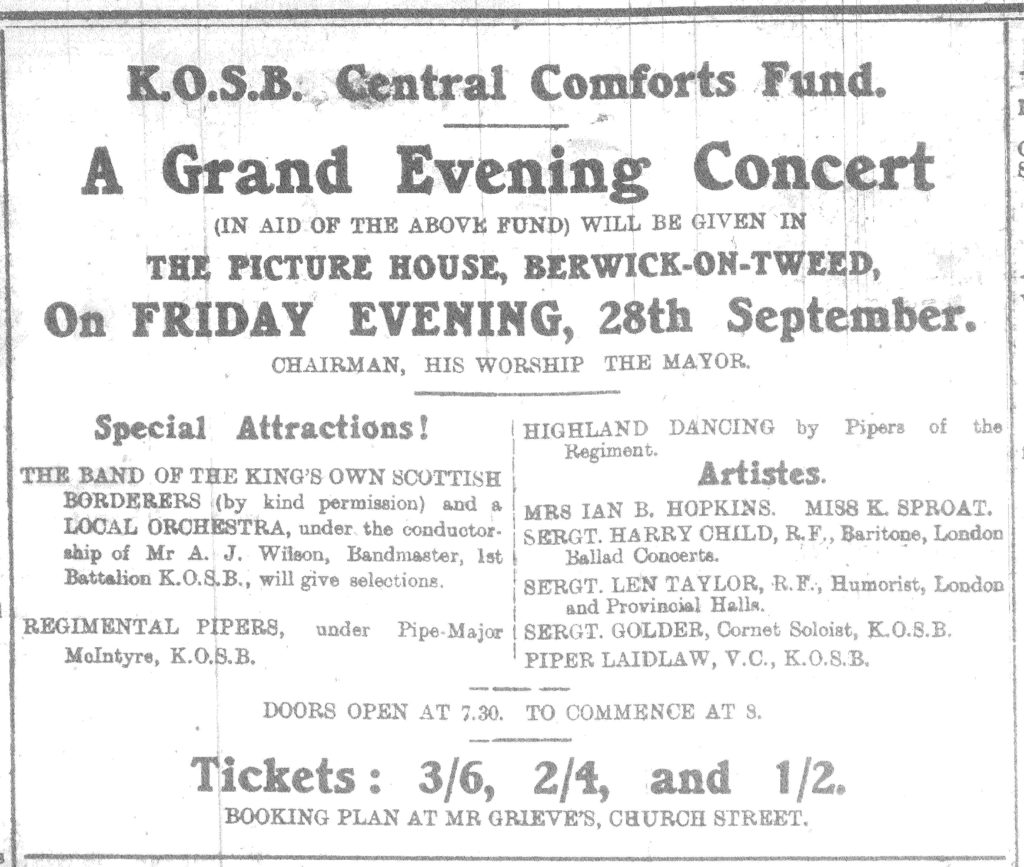
MILITARY FUNERAL AT BERWICK
The funeral of Lance-Corporal Michael Hynds, K.O.S.B., took place from the Military Hospital, where he died some days ago, to the place of interment at Berwick Cemetery on Tuesday afternoon. Military honours were accorded the procession being headed by a firing party and Depot Band, under Bandmaster Wilson. A large gathering lined the route and there was every manifestation of public sympathy.

The coffin, which was covered by the Union Jack, was borne to its last resting place by a transport lorry. At the graveside the service was conducted by the Rev. Father Smythe. Three volleys were fired over the grave, interspersed with a few bars of “Peace, Perfect Peace,” after which the last post was sounded by the regimental trumpeter.
NORHAM
Norham War Hospital Supply Depot. – This depot continues doing good work for our wounded soldiers and sailors, and during the last month the following articles have been despatched :- 1160 round swabs, 920 moss dressings, 12 rest pillows, 80 face sponges, 26 tray cloths, 16 towels, 32 jug covers.
The above were sent to Queen Mary’s Needlework Guild, 2 Cavendish Square, London, W.
Other comforts comprising 12 knitted eye pads, 410 eye pads, 240 eye swabs, 114 roller bandages, 6 knitted face cloths, 10 capilines, 2 feather pillows, 8 pairs bed socks, 71 rest cushions were despatched to the 2nd London General Hospital. Also 239 roller bandages were forwarded to Eden Hall Hostel.
The depot has also acted as a collecting station for the National Egg Collection, and since its inception by Mrs W.H. Askew in November, 1915, the following numbers of eggs have been collected :- from November, 1915, to June 1916, 6719; from July, 1916, to December, 1916, 2864; from January, 1917, to August, 1917, 3010, making a total of 12,593 eggs.
The last quarterly statement shows the depot to have £21 11s 7d in the bank, and £2 1s 3d in the treasurer’s hands.
LOCAL NEWS
A complaint has been made to us that one or two of the naval men going along Ness Street, and thence along the Pier, in order to rejoin their ships at night, are sometimes a little inclined to be noisy. This was specially noticeable on Sunday night, and when the men are doing such self-sacrificing work during the day it is a pity that there should be this unnecessary entry on the other side of the account.
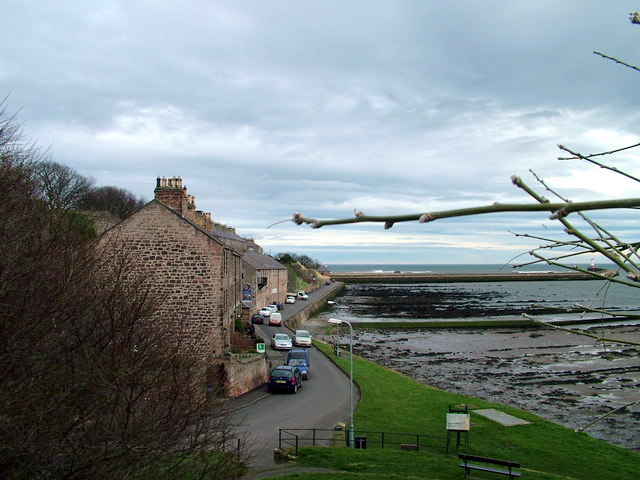
BERWICK PETTY SESSIONS
FRIDAY
Before J. McNab and C. Forsyth, Esqs.
OVERSTAYED THEIR LEAVE
Private Edward Simm, K.O.S.B. was charged with being a deserter from his regiment in France, by having overstayed his leave 21 days.
The Chief Constable stated that Simm was apprehended on Saturday and handed over to the military, but they asked the he should be brought before the magistrates, and handed over to an escort by them.
P.C. Smith said that about 9.40 on Saturday, when he was on duty in Marygate, he received information about accused, whereupon he proceed to 1, Narrow Lane, and asked him if he had overstayed his leave. He admitted that this was the case, and was taken to the Police Sstation.
The Chief Constable – The leave ended on August 14th, according to his pass.
Defendant – On the 13th -, sir.
The Chief Constable – Oh, all right, the thirteenth!
Defendant was remanded to await an escort.
Private William Curry, Scottish Rifles, was charged with being a deserter from his regiment in France, having overstayed his leave by 15 days.
The Chief Constable said he had received a note from headquarters that morning asking him to apprehend Curry.
P.C. Crombie said he went to the house of accused in Fraser’s Yard, Chapel Street, and apprehended him. He had a pass showing that his leave had been extended to August 25th.
Defendant – I have been ill, attending hospital and unable to travel.
Mr McNab – Well, are you able to travel now?
Defendant – Oh yes.
Mr McNab – Then that’s all we want. You are remanded to await an escort.


